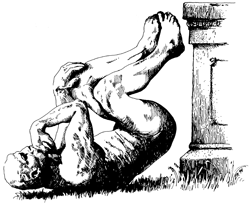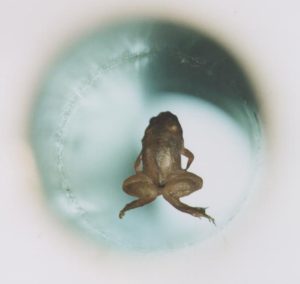
When you think of scientific research that is worthy of international recognition, 10 trillion dollars, and a prize handed out by Nobel laureates, you are probably envisioning high-impact research that helped revolutionize its field. Unfortunately, the international recognition is not for the right reasons, the 10 trillion dollars is from Zimbabwe and is worth roughly 30 US dollars, and the Nobel laureates might be laughing as they hand out the prizes. The Ig® Nobel Prize is awarded annually to ten different people in ten different categories. The prize is intended to honor achievements in scientific research that first make people laugh, and then make them think.
Started in 1991 by Marc Abrahams, the Ig® Nobel Prizes are awarded every September at Harvard University. The winners are kept secret until the ceremony, where 1200 spectators cheer on the recipients for their discoveries. Looking back at previous winners can help one get a sense of what kind of research fits the criteria for this prize. The 2017 Ig® Nobel Prize in Medicine focused on using brain-scanning technology (fMRI) to measure how disgusted people are by cheese, while the 2015 Mathematics prize was awarded for mathematically determining whether and how Moulay Ismael the Bloodthirsty, an emperor who reigned Morocco from 1697 to 1727, was able to father 888 children. My personal favorite was the 2005 Chemistry Prize, which attempted to settle the debate of whether people can swim faster in syrup or in water. For more laughs, check out previous winners!

With 2017 behind us, we can all look forward to the announcement of the 2018 winners later this year. The event is broadcast live on the internet, with additional coverage provided by NPR’s Science Friday. If you believe your research is worthy of an Ig® Nobel (hopefully it isn’t!), you can send nominations to marc@improbable.com (10-20% of the 9000 nominations every year come from self-nominations). If you happen to be nominated, you will be invited to attend the ceremony, but at your own expense! Don’t feel too self-conscious if you find yourself in this scenario. You can take comfort in knowing that Sir Andre Geim, the winner of the 2000 Physics Ig® Nobel (which he won for using magnets to levitate a frog), also won the Nobel Prize in 2010. Regardless of who wins, it is fun to follow the motto of the Ig® Nobels’, “celebrate the unusual, honor the imaginative, and spur people’s interest in science.”
Peer edited by Bailey DeBarmore.
Follow us on social media and never miss an article: